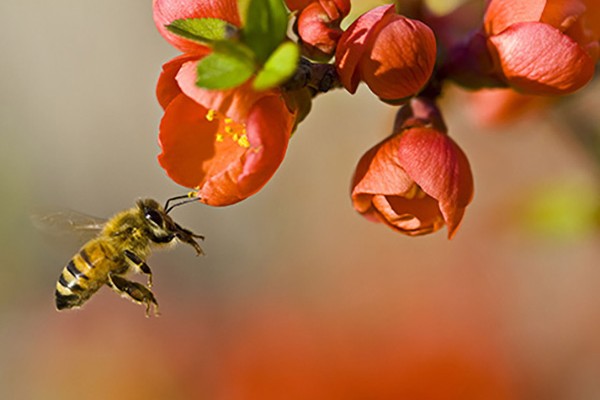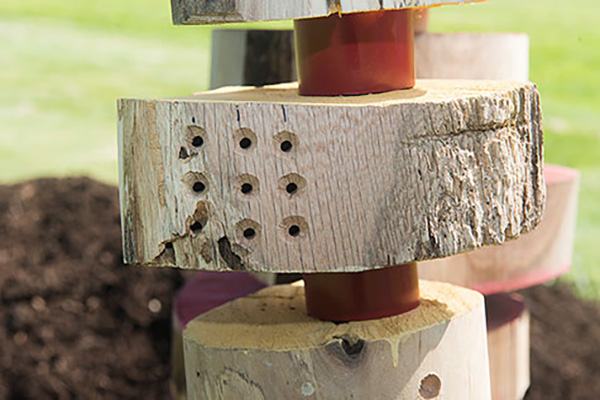Stressed bees die sooner, leading to abrupt collapse of colonies
Pathogens, pesticides and nutritional deficits have previously been identified as stressors linked to colony collapse disorder, but it was a mystery why bee colonies sometimes collapsed so rapidly, leaving bee keepers with an empty hive box. A new study suggests that when a colony is stressed, young bees are forced to become foragers much sooner than they otherwise would and this accelerated development leads to their early death.
Art, science and honeybees
Bee populations are declining worldwide. But recently, students in the Sam Fox School of Design & Visual Arts worked with PAUSE, a multinational group of scientists, gardeners and beekeepers, to design pollinator-friendly sculpture in St. Louis’ Florissant Community Garden.
Walking in the footsteps of 19th- and 20th-century naturalists, scientists find battered plant-pollinator network
Two biologists at Washington University in St. Louis were delighted to discover a meticulous
dataset on a plant-pollinator network recorded by Illinois naturalist
Charles Robertson between 1884 and 1916. Re-collecting part of Robertson’s network, they learned that although the network has compensated for some losses, battered by climate change and habitat loss it is now weaker and less resilient than in Robertson’s time.
Competition for sex is brutal in biodiversity hotspots
Good pollinators wantedMother Nature could use a few more good pollinators, especially in species-rich biodiversity hotspots, according to a new study in the Proceedings of the National Academy of Science (PNAS online, Jan. 16, 2006). Jana Vamosi, Ph.D, postdoctoral associate at the University of Calgary and Tiffany Knight, Ph.D., assistant professor of biology in Arts & Sciences at Washington University in St. Louis, and their collaborators have performed an exhaustive global analysis of more than 1,000 pollination studies which included 166 different plant species and found that, in areas where there is a great deal of plant diversity, plants suffer lower pollination and reproductive success. For some plant species, this reduction in fruit and seed production could push them towards extinction.
Fish in ponds benefit flowering plants
Fish in ponds can be a flowering plant’s best friend, according to WUSTL ecologists.Fish and flowering plants would seem to have as much in common as pigs and beauty soap. But ecologists at Washington University in St. Louis and the University of Florida have found an amazing relationship between the different species that provides a new direction for understanding how ecosystems “hook up.” A team of researchers, headed by Tiffany Knight, Ph.D., Washington University assistant professor of biology in Arts & Sciences, has shown a correlation between the presence of fish in ponds and well-pollinated St. John’s wort (Hypericum fasciculatum, Hypericaceae) at a Florida research station.


